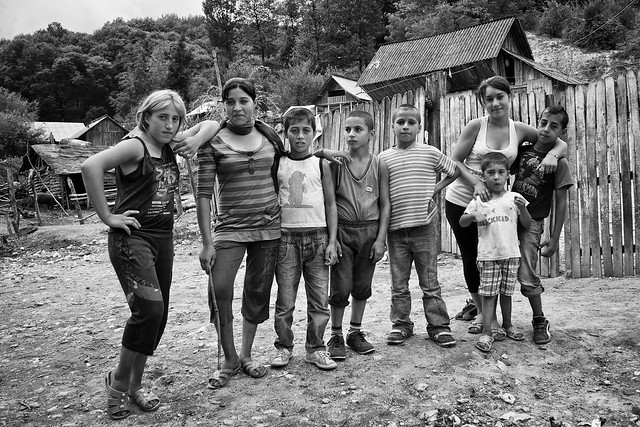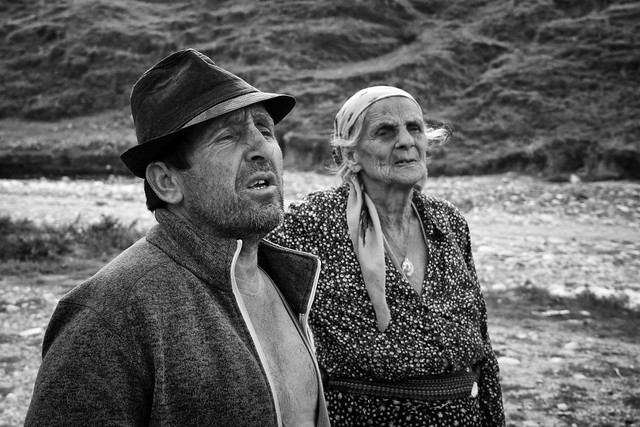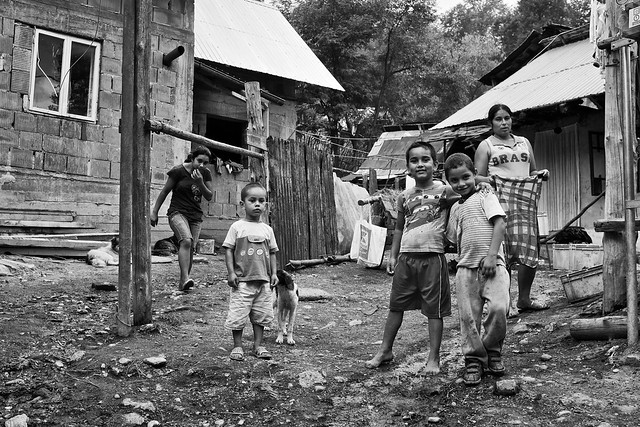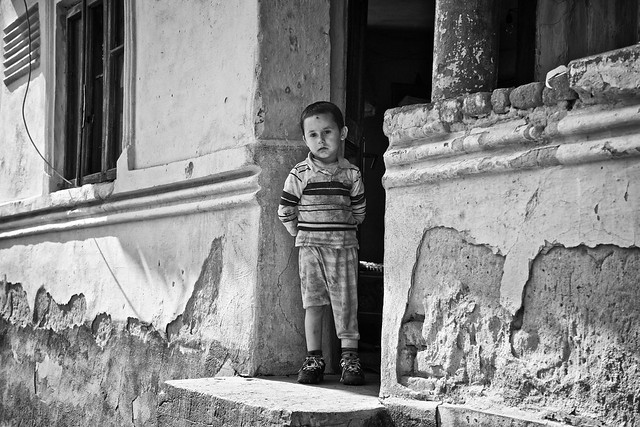The Village that doesn't exist

Follow me to three small Romanian villages in the Pauleasca area from where many of the EU migrants that begs on the streets in the Swedish towns Jönköping, Linköping and Stockholm come from. Pauleasca consists of the villages, Troislav, Tinca and Tufanu and about 4000 persons live in the area.
The people in Pauleasca were given land to live on by the communist regime in the late 1940s. But after the Romanian revolution in late 1989 most of the old documents from the communist era wasn't valid anymore and the vast majority of the houses in the area was considered to be illegal settlements. Today Pauleasca doesn't even exist on official Romanian maps. They are not longer allowed to travel on main roads with horse and carriage due to governmental restrictions. They are not longer allowed to pick branches of willow and birch In their nearby woods to make traditional handicraft like baskets and broom that they can sell on the local market. Since 2012 is begging illegal in Romania.
All those new restrictions paired with a unemployment rate of nearly 80 percent has created a desperate job migration to richer countries in the northern parts of the European Union. Most of the rudari and romani that migrate don't find a work and end up begging for money on the streets in their new countries to be able to support their families back home. The migration from areas like Pauleasca is not a cosmopolitan aspiration towards new horizons, it springs from a desperate struggle for survival for a minority that has been subjected for indifference, discrimination, hostility and racism from the state and ethnic romanians for years and years.
The people in the pictures belong to the rudari minority. Even if they live in Europe their living conditions are down to the same poverty level as people living in third world countries. They have substandard housing. Their life expectancy is 13 years shorter than the average Romanian. They lack running water, proper kitchen, bathroom and toilet. Many of the adults are illiterate but most kids are now in school from grades 1-4. Their food is deficient and many children suffer from malnutrition. Even if the future for the people in the area seems to be painted in dark colours I believe a change is gonna come.
Click the following link if you cant see the Slide-Show on your phone or tablet: www.flickr.com/photos/chasid68/sets/72157649562924582/
Text and Photo: Mikael Good




//Johan
/Mikael Good
/Mikael Good